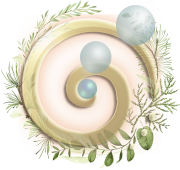
Mead Melomel Mentha Metheglin Motherwort Motion sickness Must

An independently multicultural alcoholic beverage made from honey and water through fermentation with yeast. It is seen as the ancestor of all fermented drinks. The alcoholic content can vary. It can be brewed with herbs, spices, fruits or grain mash. When it is mixed with herbs, it is called metheglin, or melomel, when it is mixed with fruits. When mead is fermented with grape juice, the brew is called pyment.
Common spices for mead: cloves, cinnamon, nutmeg.
Common herbs (and spices) for mead: oregano, ginger, hops, lavender, chamomile.
Common fruit for mead: raspberry, blackberry, strawberry.
A mead brewed with fruits. Common fruits for this variation are: raspberry, blackberry, and strawberry.

Mentha or mint is a genus of roughly 25 species from the the Lamiaceae family of plants. Mints are aromatic flowering herbs, which like it wet/moist and are considered invasive plants. When speaking of mint's value as an herbal remedy, the most famous species are spearmint and pennyroyal. The most common and important recognized hybrid is peppermint, which also has healing properties.
When one speaks of 'mint leaves', without an additional qualifier (such as peppermint or apple mint), it usually refers to spearmint leaves.
Other than for culinary and aromatic applications, mint is best known as an antipruritic and an excellent diuretic (increases the frequency of urination).
Mint is an excellent antipruritic, especially with insect bites, and that is one of its most common uses.
Mint leaves repel mosquitos and planting mint close to doors and/or windows keeps the ants away.
Mint is also a natural, eco-friendly insecticide.
 Folk remedy
Folk remedy
Pliny the Elder, a Roman natural philosopher and naturalist, used to recommend a mint wreath to students in order to 'exhilarate their minds'.
Mint leaves are non toxic. Mint can be problematic during pregnancy, so it is best avoided. In nursing mothers, mint can affect the milk. Mint essential oil, if ingested undiluted, is toxic. Mint essential oil is generally more suitable for topical solutions.
A mead brewed with herbs. Common herbs and spices for this variation are: oregano, ginger, hops, lavender, and chamomile. Also any herb that you would use for tea.


Motherwort (Leonurus cardiaca) is a flowering herb from the Lamiaceae family. Its common name Motherwort already points to one of its major uses, as it is a valuable remedy for variouses 'female ailments'.
Motherwort's hairy flowers bloom from May/June to September.
A motherwort potion is traditionally used by midwives for the uterus and prevents uterine infection.
Motherwort can stimulate the mestrual blood flow.
Motherwort helps with problems associated with menopause.
Motherwort helps with stomach cramps and flatulence.

Motherwort has a relaxing and soothing effect on the muscles due to the psychoactive alkaloid leonurine. It is known to help with nervous heart conditions. Motherwort extract has sedative properties, even stronger than those of valerian root.
 Folk remedy
Folk remedy
Motherwort tea is excellent as an occasional remedy for insomnia, though it should not be used regularly for this purpose.
Motherwort is a safe and non toxic herb, though some people can have an allergic reaction in form of a skin rash from prolonged contact only. It is advisable not to use motherwort during pregnancy as it may induce misscarriage.
Motion sickness, travel sickness, or kinetosis is a condition brought on by a disagreement between the visually perceived movement and the sense of movement of the vestibular system. The most common symptoms are nausea, dizziness and fatigue. The next step, if the motion sickness is not addressed, is vomiting, which however does not relieve the nausea.
People (and animals) who don't have a functional vestibular system cannot get motion sick. That is not to say that anyone who doesn't suffer from motion sickness has a non-functional vestibular system. [The vestibular system is a sensory system which contributes to our balance and our sense of spatial orientation.]
 Folk remedy
Folk remedy
A ginger drink before the trip helps prevent motion sickness.
Chewing gum or taking a nap are also effective methods.
From vinum mustum, Latin for young wine. Must is the freshly pressed fruit juice (incl. skins, seads and stems), mostly from grapes or apples. The solid remains of the must are called pomace or marc.
In mead production the term "must" refers to the unfermented mixture of honey and water.
All the information provided within the Herbalism & Healing glossary and guide is collected and shared responsibly and to the best of the author's knowledge. Neither the author nor the website offer any guarantees for any of the information, nor do they take any responsibility for anything that may or may not happen to you. However, the author does use and apply the information exactly as presented within these pages. It is meant to help, but what you do with it is up to you.
It is your life. Live it well.